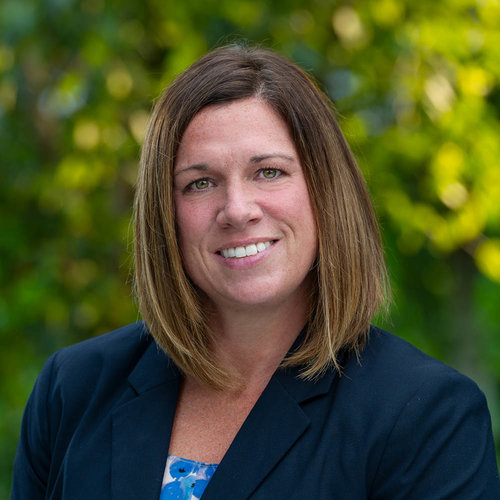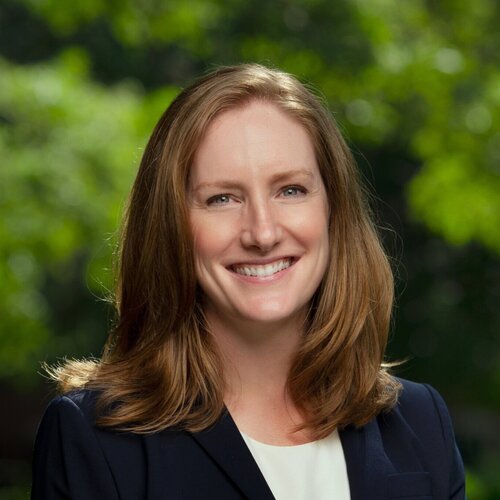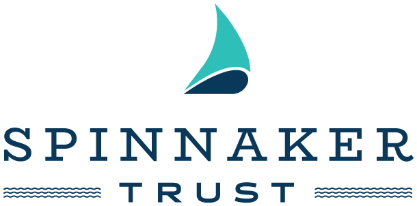
ESOP Trustee Services
As a full service trust company, Spinnaker Trust can provide independent trustee and fiduciary services for your ESOP. We pride ourselves on our thorough internal processes and documentation to ensure we fulfill all the fiduciary obligations to protect your ESOP.
Managing Your ESOP
ESOP Transaction Trustee Services
By engaging Spinnaker, you will obtain a seasoned team of professionals with expertise in stock purchase and sales transactions, ESOP administration, valuation analysis, and ERISA compliance. All decisions regarding your ESOP are made by an objective fiduciary committee.
Independent Transaction Expertise
Negotiate Price, Terms, & Conditions
Redemption & Releveraging of Stock
Thoroughly Documented Decision Process
Avoid Conflicts of Interest
Due Diligence
Providing Long-Term Support
Ongoing Trustee Services
As an ongoing trustee, Spinnaker will act for the exclusive benefit of plan participants in a prudent manner and in accordance with plan documents. We can serve as either a directed or discretionary trustee.
Vote Company Stock
Distribution Processing & Tax Withholding
Trust Accounting
Fiduciary Oversight of Plan Assets
Corporate Governance
Annual Due Diligence & Participant Education Meeting
Compliance with ERISA’s Strict Rules
Frequently Asked Questions
- Spinnaker
- The Role of the ESOP Trustee
- Working with Spinnaker Trust
- About the ESOP Transaction
- After the ESOP Transaction
Spinnaker Trust works with more than 65 ESOPs from a wide variety of industries, including construction, manufacturing, retail, engineering, architecture, financial services, and insurance. The company’s roster of ESOP clients includes some of the largest construction companies in Maine and Massachusetts as well as other iconic New England brands. Since Spinnaker Trust is also an ESOP – having converted to an ESOP in 2017– we bring a unique perspective to the table.
Spinnaker is headquartered in Portland, Maine and has a presence in Saratoga Springs, New York. Spinnaker serves as an ESOP Trustee for clients throughout New England, New York, New Jersey, and Pennsylvania. We intentionally maintain a regional focus to ensure we can provide the highest quality service to all our ESOP clients.
All ESOPs are required by federal law to appoint a Trustee to oversee the ESOP Trust for the benefit of all the participants.
The Trustee acts as a fiduciary, and has a legal obligation to act in the best interest of the plan participants and beneficiaries.
An ESOP Trustee handles many critical aspects of ESOP administration. This includes setting the annual share price, monitoring the Board of Directors, performing the trust accounting, assisting with participant distributions from the Plan, and coordinating with attorneys, accountants, and the third-party administrator to ensure that plan documents are being followed.
No, the ESOP Trustee does not manage the company’s day-to-day operations. In fulfilling its fiduciary duty to represent the interests of shareholders (ESOP participants), the Trustee monitors the Board of Directors to ensure the Board is engaged, appropriately selects the management team, and supervises their work.
Long term, it pays off to use an ESOP Trustee who is an independent third party solely focused on ensuring the success of the company and value for ESOP participants.
An external Trustee can offer a big-picture perspective on best practices, industry trends, and an understanding of changes in regulations and tax laws that could impact the ESOP.
An internal Trustee, who only handles ESOP Trustee duties on a part-time basis, cannot bring that kind of wisdom to the table.
Furthermore, having an outside professional as the Trustee instills a certain degree of trust in the organization. ESOP participants draw confidence from knowing that there is an independent party who has a fiduciary duty to ensure the Board of Directors and management team are stewarding the company’s financial health, and the value of their shares. Even a perceived conflict of interest can erode the confidence that ESOP participants have in the company, and their commitment to it.
For many business owners, an ESOP offers an ideal succession option. It offers liquidity while preserving operational excellence, management and company culture, and gives employees a vested interest in the company’s long-term success. Business owners who opt for an ESOP rather than selling to a third party get to preserve the business legacy they have built, while financially rewarding the employees who helped build the company’s success. What’s more, studies have shown that ESOPs pay off for all involved. When comparing household net worth, income from wages and job tenure, ESOP participants’ medians outperformed those who worked at privately held companies.
The transaction is similar to selling the business to a third party. Prior to hiring the Trustee, the seller and the company will hire legal counsel and a financial advisor to help structure the sale, present the first offer to the Trustee, and negotiate the deal. The Trustee will represent the ESOP and serve as the buyer, with its own legal counsel and financial advisor to assist in negotiations.
The Trustee selects and hires the valuation firm. The company is responsible for paying all fees associated with the valuation firm.
Spinnaker’s ESOP team includes two individuals, Laura Pfeiffenberger and Serena Amlie, who were valuation professionals prior to joining Spinnaker Trust. Both Laura and Serena hold the Accredited Senior Appraiser (ASA) designation from the American Society of Appraisers. This designation recognizes appraisers for having achieved the highest level of education, training, and report writing for business valuations.
The valuation firm relies on accepted methodologies using one or more of three general approaches: the income approach, the market approach, or the asset approach. Which method the valuation firm uses depends on a number of factors specific to the company.
The Board of Directors should evaluate and discuss any potential acquisition targets. Once the Board decides to move forward with an acquisition, Spinnaker requests to be notified. While the Trustee is not responsible for approving or rejecting acquisitions, we will ask to review documentation of steps taken by the Board to analyze the offer and the reasons why the Board decided this was in the best interest of the company.
A repurchase obligation is the requirement that the company must liquidate participant accounts when they are eligible to receive a distribution. Participant distributions are usually paid once a year. The Board of Directors is responsible for ensuring the company has the liquidity to fund the annual repurchase obligation.
The Trustee is responsible for setting the annual share price. As part of this process, Spinnaker engages an independent and qualified financial advisor to perform a valuation of the company to assist in setting the annual share price.
Yes. Spinnaker meets with employees on-site to educate them about the ESOP, both at the time of the ESOP transaction and on an ongoing basis. This helps create a smoother transition, and ensures that participants understand the benefits they are receiving through the ESOP.
The company should designate a human resources or employee benefits manager designated as initial contact for ESOP questions from participants. We have found many of the questions are specific to the participant, which the company is better equipped to answer. Of course, if the question cannot be answered by a company official, Spinnaker is happy to assist.
No. Spinnaker does not require a seat on the Board of Directors. Rather, Spinnaker works to ensure there is an independent and informed Board making strategic decisions in the best interest of the company and shareholders. Spinnaker ensures that executive compensation is determined by a committee chaired by an independent Board member. Spinnaker does not typically attend Board meetings but can do so upon request. Spinnaker does request and review Board minutes.
As a Trustee, Spinnaker requests that the following information be provided throughout the year: quarterly internal financial statements, annual financial statements prepared by an external accounting firm, copies of the annual report on plan administration from the TPA, Board meeting minutes, resumes of new Board members nominated for elections, any Board resolutions that pertain to the ESOP, any amendments to the ESOP plan document, and notices of shareholder meetings with copies of meeting minutes.
As we review the information provided by the company throughout the year (i.e., quarterly financial statements, annual financial statements, annual TPA report, Board meeting minutes, etc.), we will contact the CEO or CFO to discuss any questions, issues, or concerns. We are available to attend Board meetings upon request and provide employee education if desired. We pride ourselves on being available to our clients at any point during the year. If you have any questions or need additional guidance, we are always only a phone call away.
No. Spinnaker does not ask to be added to the client’s insurance policy. Spinnaker has $15 million in fiduciary insurance coverage, with no claims to date.
Spinnaker has a minimum annual fee; however, the size of the company and complexity of the plan are also considered when determining the annual fee. The annual fee is billed quarterly, in advance. Additional services are provided at hourly rates.

I genuinely enjoy working with them as people, and I really respect the work they do. They have a true appreciation for what it’s like to be an ESOP.
ESOP Client
Our People
ESOP Services Team
Our experienced staff leverage their years of experience to provide you with the customized, professional services your plan deserves.









